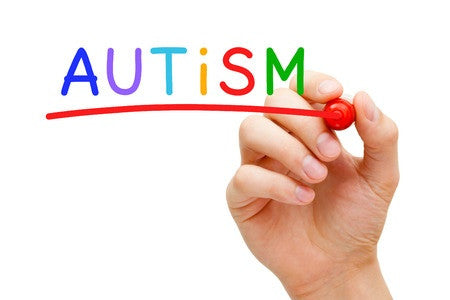
Autism-Like Behavior Reversed By Changing This One Simple Thing

As it currently stands, the autism rate is at its highest since the condition was discovered. Depending on who you ask, it's believed anywhere from 1 in 65 to 1 in 68 children born today will be affected by the condition - and it's believed things are only going to get worse.
Why is autism so prevalent?
My belief (which is supported by ample evidence) is there are a few things working to produce autism's various diagnoses. For one, I believe environmental toxins are a reason autism rates are so high.
I believe the interconnectivity between gut health and brain health is another reason autism rates continue to climb.
We are only beginning to understand the gut/brain health relationship and how it affects autism.
The good news is a recent study performed by researchers at Baylor University might give us some promising clues as to how we can use certain kinds of bacteria found in the gut to help reverse autism and its symptoms.
How One Bacteria Helped Reverse Autism-Like Symptoms
When a bacteria named L. reuteri was introduced into the diet of mice who displayed autism-like behaviors, the researchers found this helped to change the behavior of the mice completely.
Here's what the researchers did and why they did it.
To help simulate a modern diet, the researchers fed pregnant mice a diet which would be quite similar to a modern-day fast food diet.
The reason they did this is it's been observed mothers who are obese (or who have a diet which could lead to obesity) typically have a greater chance of having children who find themselves on the autism spectrum.
Once the mice gave birth, the pups spent three weeks with the mothers before being weaned onto a "normal diet."
Within a month's time, it was observed the mice who were born to the mothers on the fast food diet displayed autism-like behavior.
Interestingly, when the scientists compared these mice's gut bacteria to the bacteria of the ones who had been eating a normal diet, they noticed both groups had very distinct gut bacteria populations.
From looking at those populations, the researchers were able to determine how a mouse would behave later on in life. Mice who had a fast food diet had gut bacteria indicating they would likely behave as if they had autism (i.e. they would be socially withdrawn and refuse to initiate interactions with other mice).
The ones who didn't eat the fast food diet had different gut bacteria populations entirely.
At this point, the researchers introduced the new bacteria (L. reuteri) into the fast food mice's diet.
The way they did this was kind of gross, but it proved their suspicions correct.
Researchers combined the group of mice with autism-like behavior with the group of normal mice.
Because mice eat each other's droppings, this ensured the spread of bacteria between the two groups.
After a few weeks together, the mice who had a fast food diet (and who were now eating a normal diet and other mice droppings) saw many of their autism behaviors cease.
The researchers then took the normal mice gut bacteria and isolated the exact bacteria that helped produce the change.
Once the team had established this solid link between behavior and gut bacteria, they decided to pinpoint the responsible species. The bacteria that fitted the bill most neatly was Lactobacillus reuteri; the species was found to be reduced ninefold in the mice born to mothers fed on the particularly high-fat diet.
"We cultured a strain of L. reuteri originally isolated from human breast milk and introduced it into the water of the high-fat-diet offspring," says Shelly Buffington, first author. "We found that treatment with this single bacterial strain was able to rescue their social behavior."
Though the researchers' findings don't prove gut bacteria can reverse autism, they do provide insight into some very promising treatments for the future.
Talk soon,
Dr. Wiggy
www.HealthAsItOughtToBe.com



